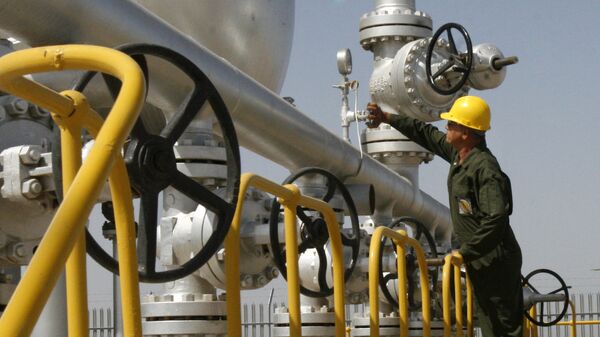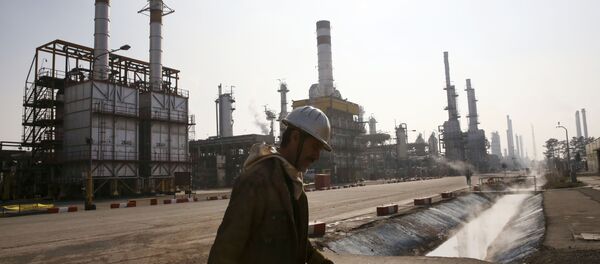Iranian Oil Minister Bijan Zanganeh stated in an interview released by news site ICANA on Saturday that Iran was not planning to abandon the Organisation of the Petroleum Exporting Countries (OPEC).
"Iran has no plans to leave OPEC…and regrets that some members of OPEC have turned this organisation into a political forum for confronting two founding members of OPEC, meaning Iran and Venezuela", according to Zanganeh.
READ MORE: US Will No Longer Provide Sanctions Waivers for States Importing Iran Oil
The oil minister's remark comes after Tehran vowed last month to take retaliatory measures if its interests in the Organisation of Petroleum Exporting Countries (OPEC) are harmed. The Iranian official also pointed out that the organisation is flawed due to "the unilateralism of some of its members and that it's possible that the organisation may collapse".
In 2016, OPEC and a number of non-OPEC oil producers agreed to cut oil production by 1.8 million barrels per day and boosted it back up by one million barrels per day in June 2018 amid US-Iranian tensions. In early December, the signatories to the deal agreed to reduce overall production by 1.2 million barrels per day starting from 2019 following Washington's sanctions against Tehran. Under the new agreement, OPEC members will reduce their oil output by 800,000 barrels per day, while non-OPEC countries will cut production by 400,000 barrels daily.
The Organisation of Petroleum Exporting Countries is an alliance comprising of 14 oil-manufacturing countries; in total, they control over 60 percent of the world's oil exports and hold 80 percent of the world's proven oil reserves.





